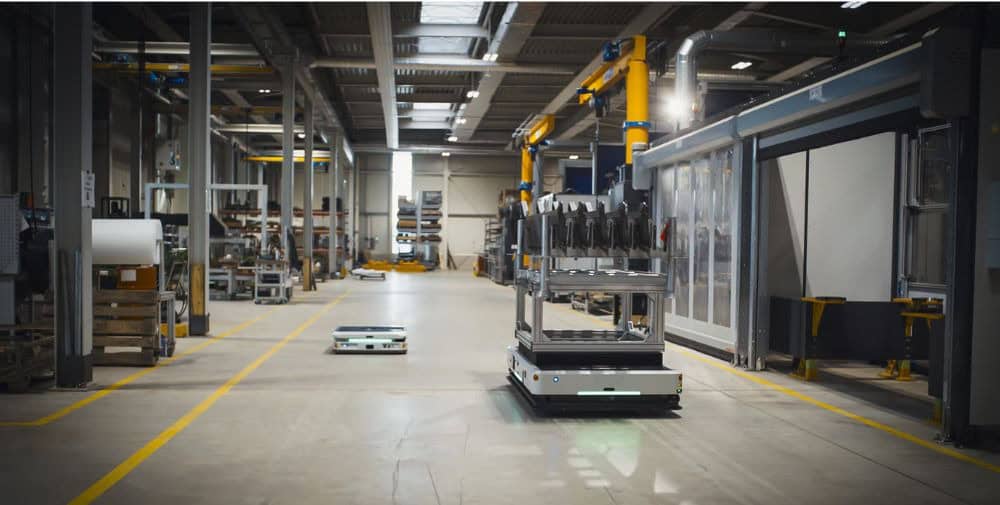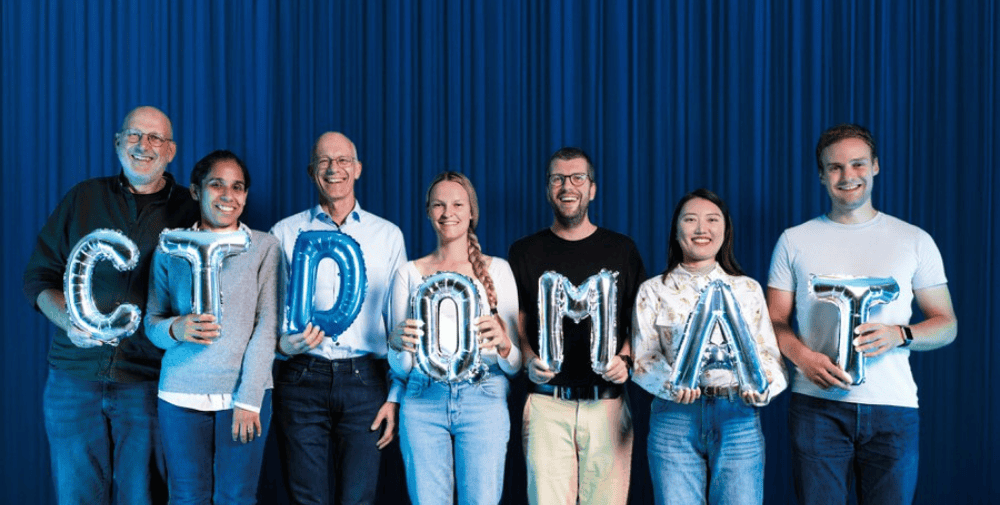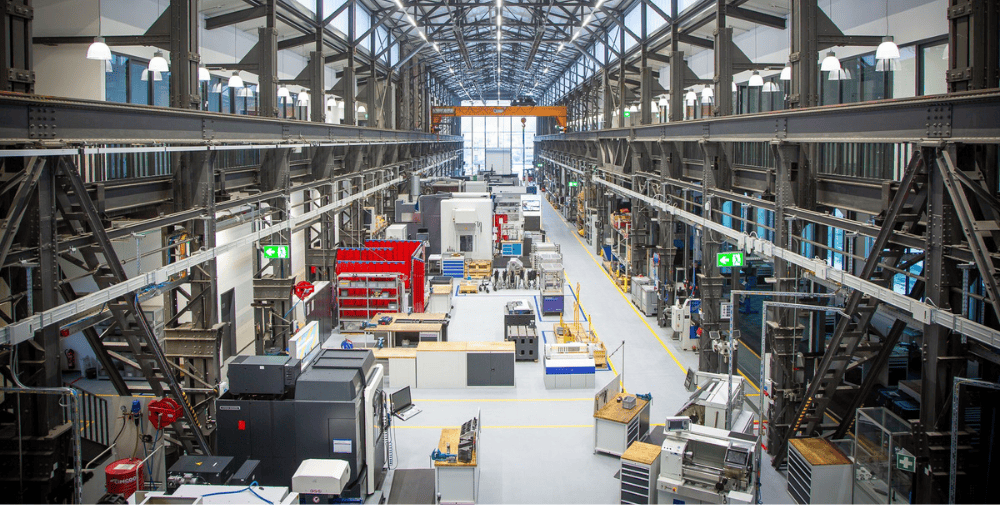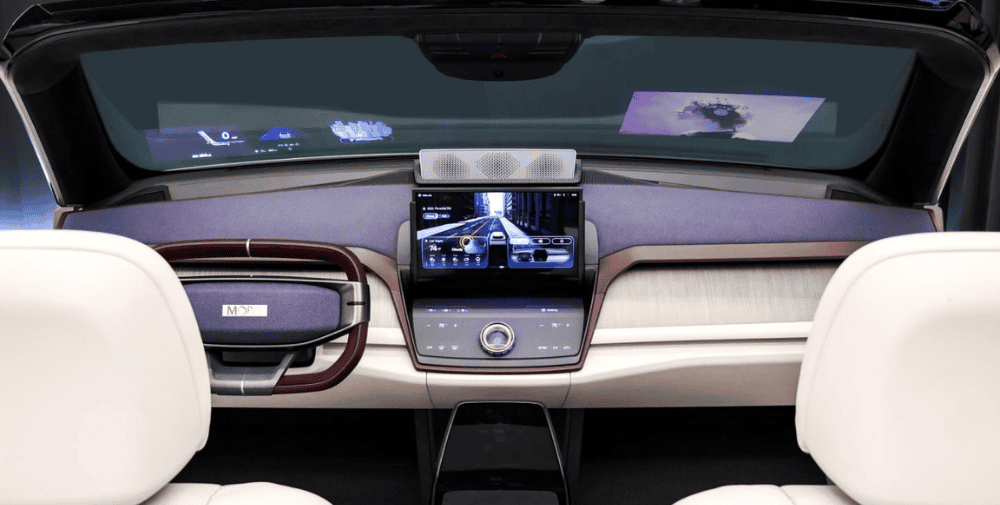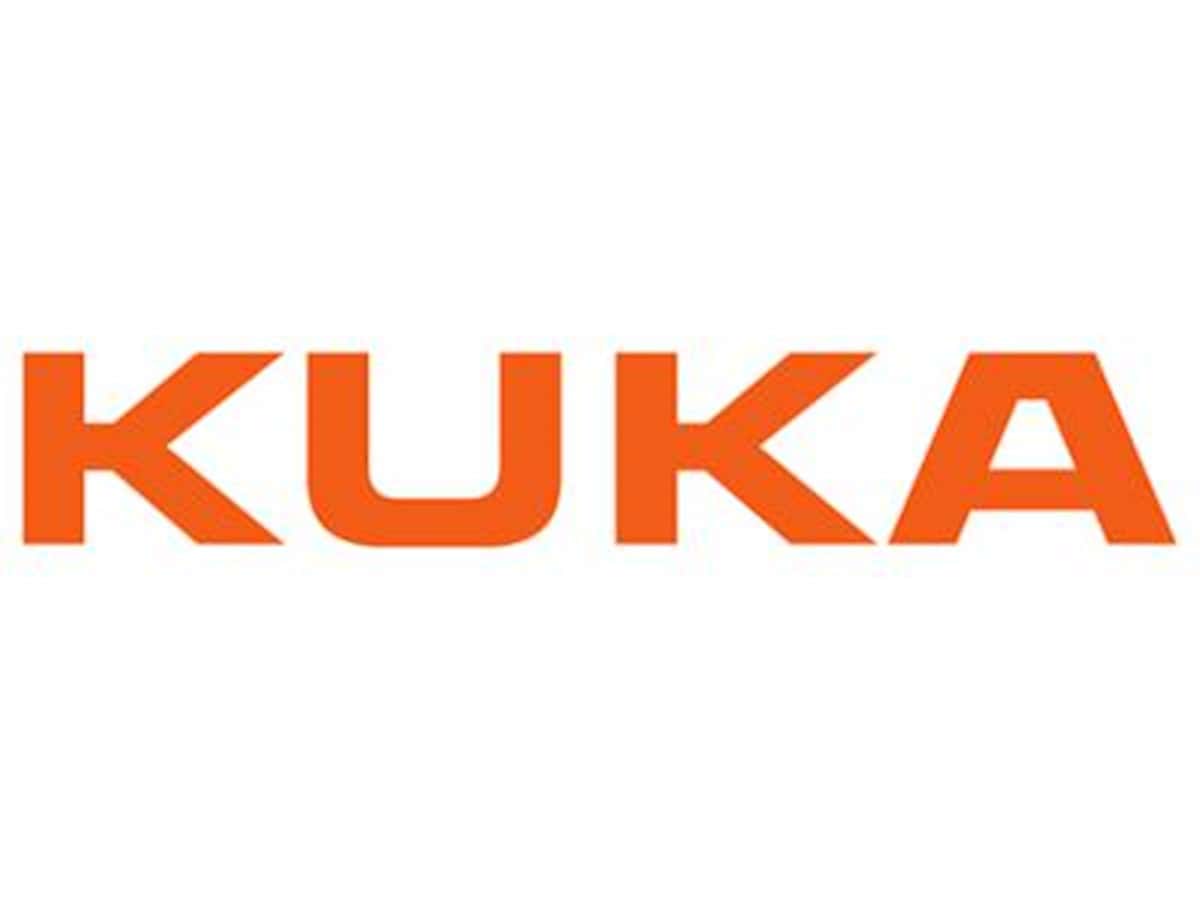
In a partnership with KUKA, KRONE, one of the largest manufacturers of agricultural machinery and commercial vehicles, is focusing on intelligent automation, both in its long-standing factory in Werlte, Lower Saxony, and in a new, smart production facility operated by KRONE subsidiary GTS in Ibbenbüren – with handling and welding robots interacting with autonomous mobile robots (AMR).
Flexibility in inventory: Werlte is automated
Six-axis KUKA handling and welding robots work digitally networked with AMRs, such as the KMP 1500P, in the truck trailer production facility in Werlte. Previous processes were previously put to the test and transferred to new working methods such as modular construction.
The welding robots are supplied autonomously and forklifts are to disappear from production as far as possible. Instead, the transport platform automatically brings material, such as the compressed air tanks or door elements, to the cell. There, a handling robot places it in the welding system. The finished assemblies are also automatically transported away from there. This significantly increases the efficiency of the production and intralogistics processes and relieves employees of heavy, monotonous tasks.
Volker Perk, Production Director of the KRONE Commercial Vehicle Group, sees robotics as a key component in securing the location: “We want to continue producing truck trailers such as the ‘Profi Liner’ in Germany in the future. To do this, however, we need to automate processes because we simply can no longer find skilled workers for many of the tasks required. Robotics gives us the opportunity to introduce our employees to more efficient or value-adding activities.”
Highly networked and digital: the Smart Factory Ibbenbüren
While Werlte is continuously modernizing existing processes, a completely new factory for agricultural machinery production was built in Ibbenbüren in Westphalia in just twelve months, literally on a “greenfield site”. With the support of KUKA, KRONE relied on ultra-modern, smart and sustainable manufacturing concepts and processes.
Every machine, robot and transport vehicle in the smart factory is digitally networked. This enables production to react immediately if tolerances are exceeded or faults occur. The systems are adaptable, they learn and correct independently.
In a single production island, nine welding and handling robots work synchronously with two machining centers and an automatic measuring cell. This has virtually eliminated downtimes and production can be flexibly ramped up or down. The first heavy-duty AMRs, such as the KMP 3000P, are also being tested in Ibbenbüren. It can move up to three tons in the production halls, twice as much in tandem, and move omnidirectionally with maximum precision even in the tightest of spaces.
“We make work more attractive”
One thing is particularly important to the KRONE factory planners: automation does not mean the end of human work, but rather its enhancement. Internal colleagues would actively apply for these positions. Ergonomics also play a role: “The new jobs are safer and less physically demanding. This makes them attractive – especially for younger generations,” says Perk.
– – – – – –
Further links
👉 www.kuka.com
Photo: KUKA
